Did you know that over 80% of travelers face challenges with currency exchange or payment methods when visiting a new country? Navigating financial systems abroad can be tricky, but with the right information, you can make your journey smoother.
When planning your travel, understanding the local currency is essential. In many places, the U.S. dollar is accepted, but it’s crucial to carry authentic bills dated post-2006. This ensures you avoid any issues during transactions.
Knowing how to handle payments can save you time and stress. Whether you’re exploring bustling markets or dining at local restaurants, being prepared with the right information will help you enjoy your experience to the fullest.
Overview of Burundi’s Currency and Payment Landscape
Navigating payments in a foreign country doesn’t have to be complicated. In this section, you’ll gain a clear understanding of the financial systems in place, ensuring your trip is smooth and stress-free.
Understanding the Burundian Franc (BIF)
The official currency is the Burundian franc (BIF). It’s subdivided into 100 centimes, though centime coins are no longer in circulation. Banknotes come in denominations of 100, 500, 1000, 2000, 5000, and 10,000 BIF.
When exchanging money, it’s essential to know the current rates. As of May 2023, the unofficial exchange rate was approximately US$1 = BIF 4,000, while the official rate was US$1 = BIF 2,831. Always check with trusted banks or authorized exchange points to avoid risks.
Cash, Cards, and Emerging Digital Solutions
Cash remains the dominant payment method for everyday transactions. Whether you’re shopping at local markets or dining out, having BIF on hand is crucial. However, U.S. dollars are sometimes accepted, provided they are in near-mint condition and dated post-2006.
Credit and debit cards are gaining traction, especially in tourist areas and larger establishments. Visa is the most widely accepted card network. Still, it’s wise to carry cash as a backup, as not all places accept cards.
Digital payment solutions are emerging but are not yet widespread. Mobile money services are becoming popular, offering a convenient way to handle transactions without relying solely on cash.
“Always exchange money at authorized banks or exchange points to ensure authenticity and avoid scams.”
Here’s a quick overview of payment methods in Burundi:
| Payment Method | Usage | Precautions |
|---|---|---|
| Cash (BIF) | Dominant for daily transactions | Carry small denominations for convenience |
| Credit/Debit Cards | Accepted in tourist areas | Inform your bank of travel plans to avoid card blocks |
| Digital Payments | Emerging, especially mobile money | Ensure your phone is compatible with local services |
For added security, follow guidelines from the U.S. Embassy. They recommend using ATMs in well-lit, secure locations and keeping your visa documents handy at all times. By staying informed, you can minimize risks and enjoy your trip to the fullest.
Navigating Currency Exchange in Burundi
Exchanging money in a new country doesn’t have to be stressful. With a bit of preparation, you can handle currency exchange smoothly and avoid common pitfalls. This guide will help you find the best places to exchange money, understand bank procedures, and ensure your U.S. bills are accepted.
Where and How to Exchange Money Safely
When exchanging currency, always choose reputable banks or authorized exchange bureaus. These locations offer fair rates and ensure the authenticity of the money you receive. Avoid street vendors or unofficial exchanges, as they may pose risks.
ATMs are another convenient option. They dispense local currency directly, often at competitive rates. Use ATMs in well-lit, secure areas, and inform your bank about your travel plans to avoid card blocks.
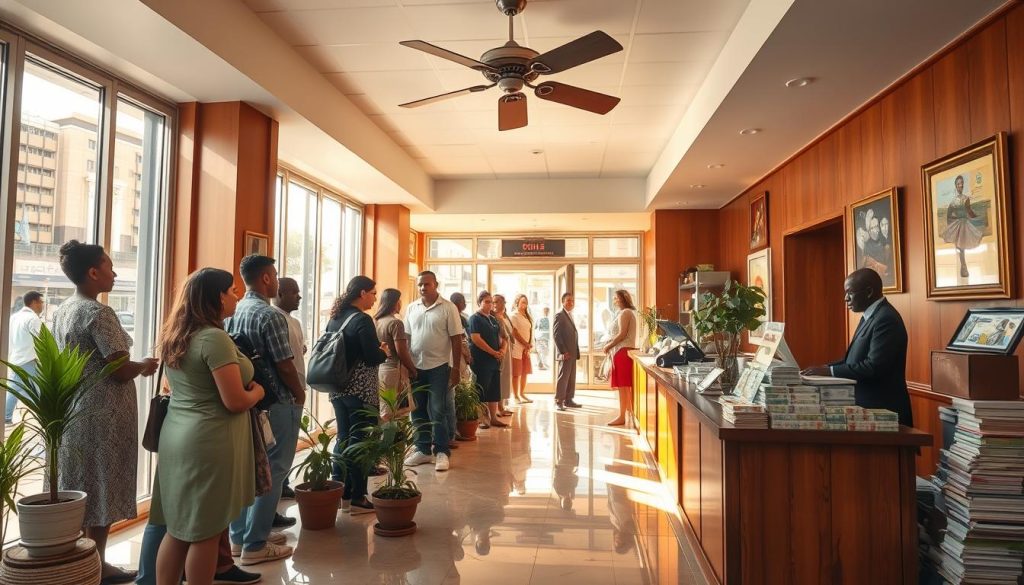
Tips for Authentic U.S. Bills and Bank Procedures
If you’re carrying U.S. dollars, ensure they are in near-mint condition and dated post-2006. Many places may reject older or damaged bills. Banks and exchange bureaus often verify the authenticity of U.S. currency, so double-check before traveling.
Plan your currency exchange needs ahead of your flight. This ensures you have enough local money for immediate expenses like transportation and meals. Smaller denominations are ideal for daily transactions, as vendors may not provide change for larger bills.
| Exchange Method | Best Practices |
|---|---|
| Banks | Use authorized banks for fair rates and secure transactions. |
| ATMs | Choose ATMs in safe locations and inform your bank of travel plans. |
| U.S. Dollars | Carry bills in excellent condition and dated post-2006. |
By following these tips, you can navigate currency exchange with confidence and focus on enjoying your trip.
Payment Methods for Everyday Transactions
Handling payments while traveling can be straightforward with the right approach. Knowing which methods work best in different situations ensures a hassle-free experience. Whether you’re dining at a hotel or shopping at a local market, being prepared is key.
Using Credit and Debit Cards in Tourist Areas
In tourist hotspots, credit and debit cards are widely accepted. Upscale hotels, restaurants, and larger shops often welcome card payments. Visa is the most commonly accepted network, but it’s wise to carry cash as a backup.
Here’s a tip: Inform your bank about your travel plans to avoid unexpected card blocks. Some companies may flag international transactions as suspicious without prior notice.
Mobile Payments and Prepaid Card Options
Mobile payments are gaining traction, offering a convenient alternative to cash. Services like mobile money are becoming popular, especially for smaller transactions. Prepaid travel cards from global providers like Revolut are another excellent opportunity.
These cards allow you to load multiple currencies and avoid hidden fees. They’re ideal for visitors who want to manage their expenses efficiently. Always check for compatibility with local payment systems before relying on these options.
| Payment Method | Best For | Tips |
|---|---|---|
| Credit/Debit Cards | Tourist areas, upscale establishments | Inform your bank of travel plans |
| Mobile Payments | Small transactions, local markets | Ensure phone compatibility |
| Prepaid Cards | Multi-currency management | Check for hidden fees |
By understanding these options, you can choose the best payment method for your needs. Whether you’re a frequent visitor or a first-time traveler, these insights will help you navigate daily transactions with ease.
Traveling Prepared: Visa, Security, and Local Laws
Preparing for international travel involves more than just packing your bags. Ensuring your passport and visa are in order is the first step to a stress-free trip. This section covers everything you need to know about visa requirements, security tips, and local laws to help you travel with confidence.
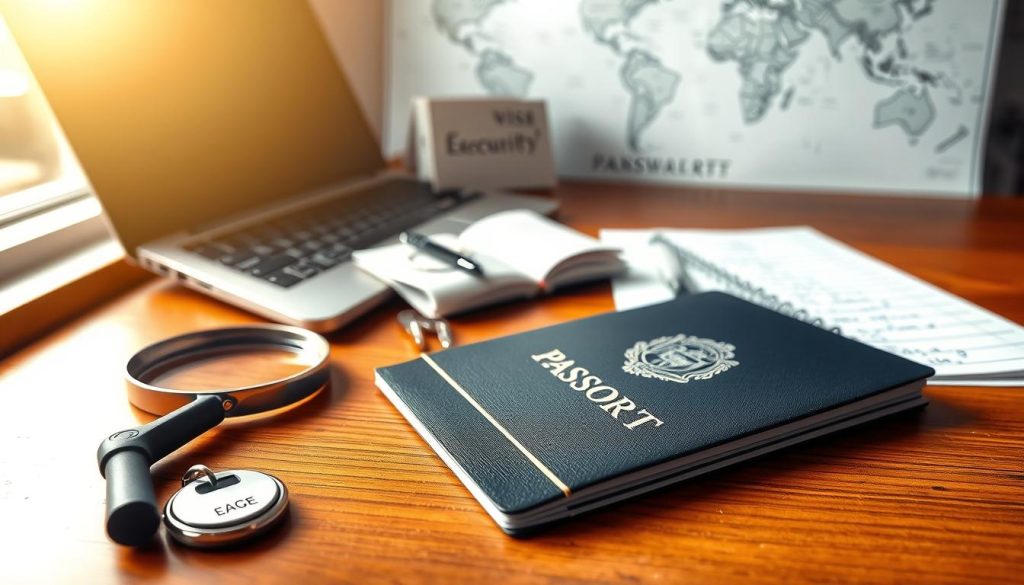
Visa Requirements and iVisa Services
Most countries require a visa for entry, and Burundi is no exception. You can apply for an electronic visa through trusted providers like iVisa. This streamlined process saves time and ensures you meet all entry requirements. Double-check your passport expiration date before applying, as it must be valid for at least six months beyond your travel dates.
For added convenience, some nationalities can obtain a visa upon arrival, valid for up to 30 days. However, it’s always safer to secure your visa in advance to avoid last-minute issues. Keep a printed copy of your visa and other travel documents with you at all times.
Staying Updated with Local Legal and Security Guidelines
Understanding local laws and security measures is essential for a safe trip. Stay informed about the latest advisories from your embassy or consulate. Avoid areas with reported unrest and always follow local guidelines.
Health precautions are equally important. Ensure you’re up-to-date on vaccinations, including yellow fever, especially if traveling outside major cities. Carry a basic first-aid kit and any necessary medications, as medical facilities may be limited.
“Always check the latest travel advisories and health recommendations before your trip to stay informed and prepared.”
Cultural awareness is also key. Respect local customs and traditions to foster positive interactions. For example, dress modestly in public spaces and ask for permission before taking photos of people or landmarks.
By following these tips, you’ll be well-prepared to navigate visa requirements, security concerns, and local laws. This ensures a smooth and enjoyable travel experience.
Planning Your Trip: Budget, Accommodation, and Transport
A well-organized trip starts with a clear budget and transportation plan. Whether you’re exploring bustling cities or serene countryside, understanding costs and transport options ensures a seamless experience.
Managing Your Travel Budget
Budgeting is key to a stress-free journey. Accommodation costs vary widely, with budget options starting at $10 per night and luxury hotels exceeding $150. Meals at local restaurants are affordable, averaging $2 to $10, while bottled water costs around $0.50.
For daily expenses, budget travelers can manage with $30 to $50, while mid-range travelers may spend around $100. Always allocate extra funds for unexpected costs like entrance fees to attractions, which range from $5 to $20.
Transportation, Taxis, and Negotiation Tips
Transportation plays a vital role in your trip. Taxis are a common mode of travel, with short trips costing around $2. Negotiating fares is common, so don’t hesitate to discuss prices before starting your journey.
Road conditions can vary, especially during the rainy season. Flash floods are frequent, so plan your travel accordingly. If you’re near the Democratic Republic Congo border, ensure you have the necessary permits and documents for cross-border travel.
Here’s a quick guide to transportation costs:
- Taxis: $2 for short trips; negotiate fares in advance.
- Road Travel: Be cautious during the rainy season due to flash floods.
- Cross-Border: Verify permits and documents near the Democratic Republic Congo.
By planning your budget and transport wisely, you can focus on enjoying your trip without unnecessary stress. Whether you’re navigating local roads or exploring new areas, these tips will help you stay prepared and within budget.
Exploring Local Culture and Cuisine
Exploring the culture and cuisine of a new place can be a highlight of your journey. From savoring traditional dishes to understanding local customs, these experiences offer a deeper connection to the region. Whether you’re in the capital or a smaller city, immersing yourself in the food and traditions will enrich your trip.
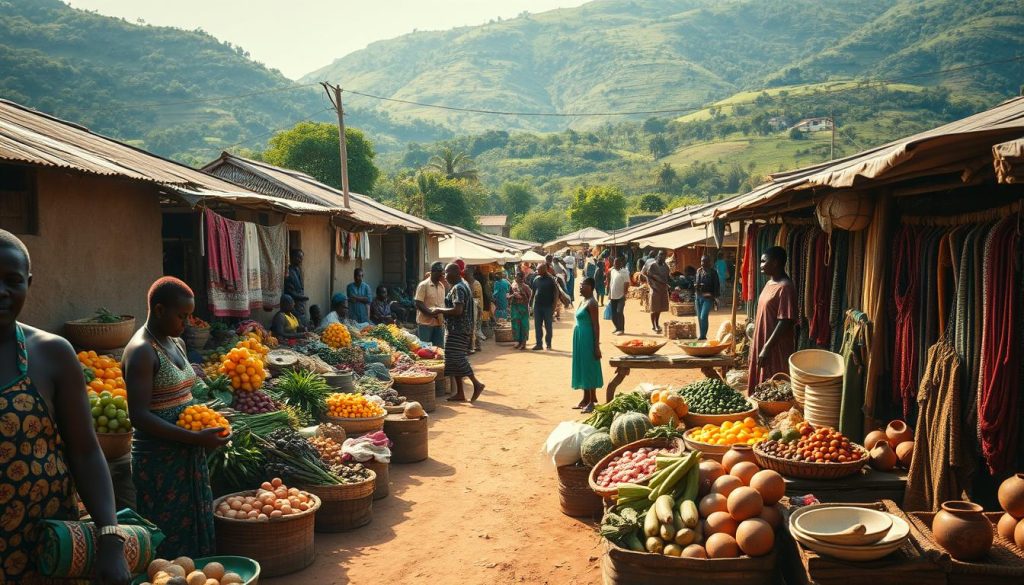
Sampling Traditional Dishes
Burundian cuisine is a blend of flavors and textures that reflect its heritage. One must-try dish is brochettes, skewered meat grilled to perfection. Another staple is matoke, a plantain-based dish often served with beans or meat. These meals are not just about food; they tell stories of the people and their history.
When dining out, you’ll find that drink options like locally brewed beer or banana wine complement the flavors. In the capital, restaurants often serve these dishes with a modern twist, while smaller cities offer more traditional preparations. Don’t hesitate to ask locals for their favorite spots—it’s a great way to discover hidden gems.
Understanding Cultural Etiquette
Respecting local customs is key to a positive experience. When dining with a group, it’s common to share dishes from a central plate. This practice fosters a sense of community and togetherness. Always use your right hand for eating, as the left hand is considered impolite in certain situations.
Cultural performances, such as drumming and dancing, are another way to connect with the community. These events often take place during festivals or special occasions. Participating or even just observing can provide valuable insights into the local way of life.
| Aspect | Tips |
|---|---|
| Dining Etiquette | Use your right hand for eating; share dishes in groups. |
| Local Dishes | Try brochettes and matoke for an authentic experience. |
| Cultural Events | Attend drumming performances to connect with traditions. |
By embracing the food and customs, you’ll gain a deeper appreciation for the region. Whether you’re exploring the capital or a smaller city, these experiences will leave a lasting impression. Remember, every bite and interaction tells a story of the people and their heritage.
Burundi: Ultimate Travelers Guide to Currencies & Payments
Planning your finances before traveling can make all the difference. Understanding local payment systems ensures a smoother journey. Whether you’re visiting during the dry season or the rainy months, being prepared is key.
- Carry local currency for daily transactions, especially in smaller towns.
- Credit cards are accepted in tourist areas, but cash is king in local markets.
- Check reputable websites for updated exchange rates and travel advisories.
Seasonal trends can impact your travel plans. For example, the rainy season may affect road conditions, especially near the democratic republic border. Always stay informed and plan accordingly.
“Consulting trusted websites and local advice ensures you’re always prepared for unexpected changes.”
Personal stories add authenticity to your travel plans. One person shared how carrying small denominations of local currency made their trip stress-free. Another emphasized the importance of checking seasonal forecasts before booking flights.
By following these tips, you’ll navigate your journey with confidence. Whether you’re exploring bustling cities or serene countryside, being financially prepared ensures a seamless experience.
Guide to Sending Money to and from Burundi
Managing international money transfers can be straightforward with the right tools. Whether you’re supporting family or handling business transactions, understanding the process ensures efficiency and security. This guide covers the top providers and best practices for seamless transfers.
International Money Transfer Providers
Several providers offer competitive rates and low fees for sending money. Wise is a top choice, with a $16.11 fee per transfer and a 1% markup on exchange rates. Xoom is another affordable option, charging $0 per transfer with a 2.5% markup. For speed, Ria Money Transfer stands out, completing transactions quickly with a $4 fee.
Exchange rates can fluctuate throughout the year, so it’s wise to monitor trends. For example, the average USD to BIF rate over the past six months ranged from 2,915 to 2,961. Choosing a provider with transparent rates, like Wise, ensures you get the best deal.
Best Practices for Secure Transfers
Security is paramount when sending money internationally. Always use trusted providers and avoid unofficial channels. Double-check recipient details to prevent errors. If you’re near the republic congo border, ensure compliance with local regulations to avoid delays.
Infrastructure factors, such as reliable water supply and efficient management systems, can impact transfer operations. These elements, much like managing a national park, require careful planning and execution. Additionally, consider insurance options for added protection against unforeseen issues.
“Using trusted providers and staying informed about exchange rates ensures your money reaches its destination safely and on time.”
By following these tips, you can send money with confidence. Whether you’re supporting loved ones or managing business finances, the right approach makes all the difference.
Leveraging Technology for Hassle-Free Payments
Modern technology has revolutionized the way we handle payments while traveling. From prepaid travel cards to multi-currency solutions, these tools simplify your financial experience abroad. Whether you’re exploring the shores of Lake Tanganyika or managing expenses from home, these innovations ensure convenience and security.
Benefits of Prepaid Travel Cards and Multi-Currency Solutions
Prepaid travel cards are a traveler’s best friend. They allow you to load multiple currencies, reducing foreign exchange fees. These cards are widely accepted, making them ideal for daily transactions. For example, you can use them to pay for meals near Lake Tanganyika or shop in local markets.
Multi-currency accounts are another great option. They let you hold and manage funds in different currencies. This is especially useful if you’re traveling to multiple countries. You can transfer money from your home account without worrying about fluctuating exchange rates.
Utilizing Global Providers Like Revolut and Wise
Global providers like Revolut and Wise offer advanced payment solutions. Revolut provides a seamless way to manage expenses abroad. You can track spending, set budgets, and even split bills with friends. Wise, on the other hand, focuses on low-cost international transfers. Both platforms are user-friendly and secure.
Here’s a quick comparison of these providers:
| Provider | Key Features | Best For |
|---|---|---|
| Revolut | Multi-currency accounts, budgeting tools | Daily expenses and travel |
| Wise | Low-cost transfers, transparent fees | International money transfers |
By leveraging these tools, you can focus on enjoying your trip. Whether you’re near Lake Tanganyika or managing finances from home, technology ensures a hassle-free experience.
Staying Safe: Security Tips and Local Guidelines
Ensuring your safety while traveling is as important as planning your itinerary. Understanding the local security situation and following guidelines can help you avoid risks and enjoy your trip responsibly. Here’s what you need to know to stay safe and prepared.
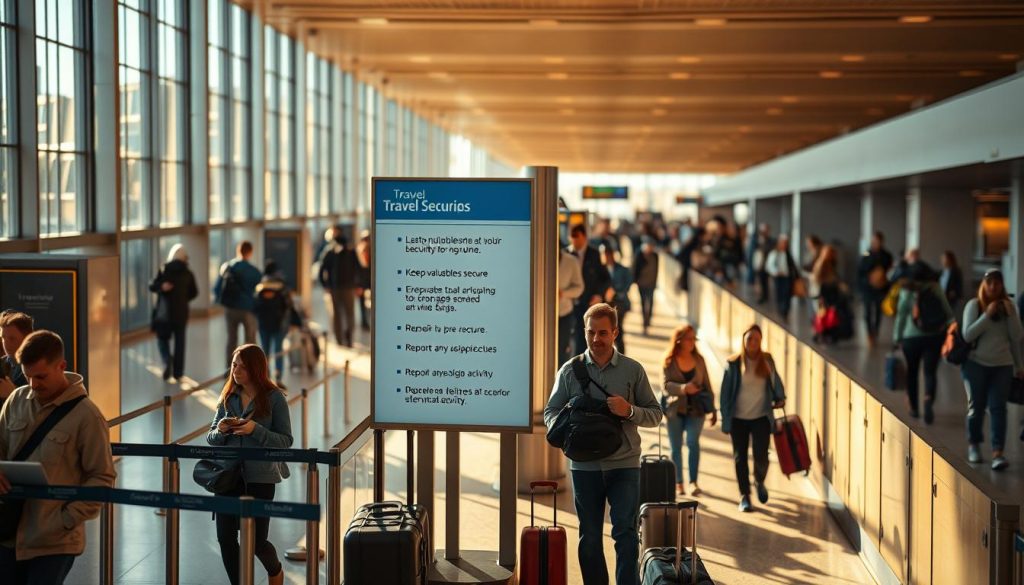
Key Safety Advice for Travelers
When traveling, it’s essential to stay aware of your surroundings. Avoid walking alone at night, especially in urban areas. Petty crimes like pickpocketing can occur, so keep your belongings secure. In areas with a higher security situation, such as near borders, exercise extra caution.
Dress modestly and respect local customs to blend in. Avoid displaying valuables like expensive jewelry or large sums of cash. If you’re driving, keep doors locked and bags out of sight to prevent theft at traffic lights.
- Stay Alert: Be mindful of your surroundings, especially in crowded places.
- Secure Belongings: Use anti-theft bags or money belts to protect your valuables.
- Avoid Risky Areas: Steer clear of poorly lit streets or areas with reported unrest.
How to Handle Emergencies in Burundi
In case of an emergency, knowing what to do can make all the difference. Keep your embassy’s contact information handy and report any incidents to local authorities immediately. If you’re in a condition requiring medical attention, seek help from reputable clinics or hospitals.
For serious conditions, medical evacuation may be necessary. Ensure your travel insurance covers such scenarios. Always carry a copy of your passport and important documents in case of theft or loss.
“Being prepared and informed is the best way to handle emergencies while traveling.”
By following these tips, you can navigate your journey safely and confidently. Whether you’re exploring cities or rural areas, staying informed ensures a smooth and enjoyable experience.
Exploring Regional Highlights and Natural Wonders
Exploring the natural wonders of a region can be a transformative experience. From vibrant cities to serene landscapes, every destination offers something unique. Whether you’re drawn to cultural landmarks or breathtaking scenery, this guide will help you uncover the best of what the area has to offer.
Discovering Bujumbura and Lake Tanganyika
Bujumbura, the former capital, is a bustling hub of culture and history. Stroll through its lively markets or relax by the shores of Lake Tanganyika, one of the world’s largest freshwater lakes. The lake’s crystal-clear waters are perfect for swimming, boating, or simply enjoying the view.
For a deeper connection to nature, visit Rusizi National Park, just 20 km outside the city. Here, you can spot hippos, crocodiles, and a variety of bird species. The park’s tranquil setting makes it an ideal destination for nature lovers.
Insights into National Parks and Local Attractions
Kibira National Park is another must-visit destination. Home to over 100 mammal species and 200 bird species, it’s a paradise for wildlife enthusiasts. The park’s lush forests and scenic trails offer a peaceful escape from the hustle and bustle of city life.
If you’re interested in history, don’t miss the southernmost source of the Nile at Rutovu. Discovered in 1937, this site holds significant cultural and historical value. It’s a reminder of the region’s rich heritage and its connection to the world’s longest river.
“Every destination tells a story, and exploring these natural wonders allows you to become part of that narrative.”
When planning your visit, consider the local situation. Weather conditions can vary, so it’s best to travel during the dry seasons for optimal experiences. Whether you’re exploring national parks or relaxing by the lake, these insights will help you make the most of your journey.
Conclusion
Your journey can be seamless with the right preparation and knowledge. This guide has provided essential tips to help you navigate local payment methods, stay safe, and make the most of your experience. Whether you’re exploring bustling markets or serene landscapes like Kibira National Park, being well-prepared ensures a stress-free trip.
Remember to carry local currency for daily transactions and keep safety guidelines in mind. Reviewing practical information, much like planning a visit to Kibira National Park, is key to a smooth adventure. Use this guide as your go-to resource for a successful and enjoyable journey.
By following these insights, you’ll be ready to embrace every moment of your travels. From understanding local systems to staying informed, your trip will be as enriching as it is memorable. Safe travels!
The above is subject to change.
Check back often to TRAVEL.COM for the latest travel tips and deals.
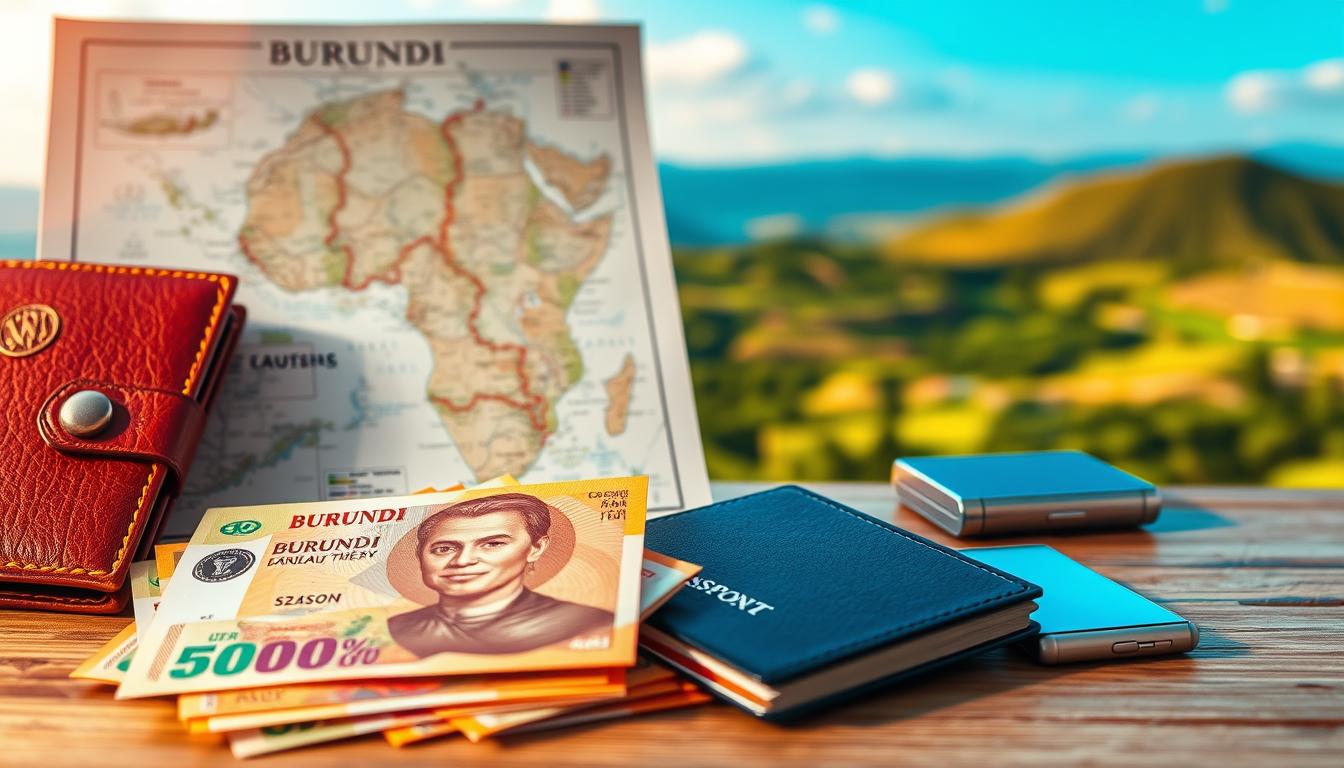

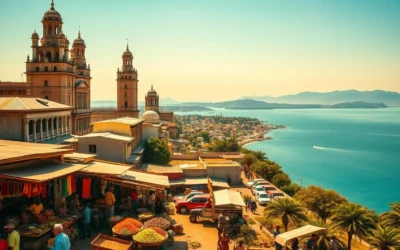


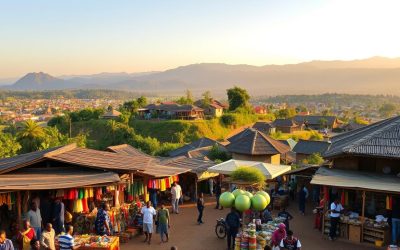
0 Comments